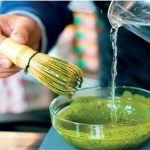The UK Tea Academy Evolves to Meet Today’s Specific Needs
“All around the world for a very long time, people seemed to have the idea that the British really knew about tea. Sadly, as in so many countries, tea in the UK has until recently, at best been treated like a poor relationand at worst, totally ignored,
with the depressing result that even the most up-market tea lounges were often serving poor quality tea, and brewing it badly,” lamented tea author and expert, Jane Pettigrew. The UK Tea Academy evolves to meet today’s specific need.
Establishing the Academy
In 2015, the UK Tea Academy (UKTA) was established in London to help raise awareness of quality tea amongst the consuming public, and foster an understanding of tea, brewing standards and tea service in the food and beverage industry.
The founders of the UKTA are professionals in either tea or training — except in the case of Jane Pettigrew, who is both. She has been a tea writer, historian, and educator for 30 years and is the UKTA’s director of studies.
Developing the programme
Jane developed a programme to equip tea lovers and those working or planning to work in tea. Therefore, understanding the six categories of tea from major origins. An appreciation of the vast range of aroma and flavour profiles they offer. The facts about tea’s health benefits, caffeine and L-theanine; and a thorough working knowledge of all the factors that must be considered when brewing tea.
Course offerings
Courses are offered at three levels – Foundation, Sommelier, and Masterclass – and were designed to take place in the classroom so that trainees could be involved in crucial practical activities such as brewing, tasting, and blending. Since the
start of the Academy’s activities, students from all over the world have attended courses, and many have been back to London several times to join different classes.
This first part of the article has been reproduced from the Tea and Coffee Journal’s July/August 2020 edition and you can see the full article on page 6.



